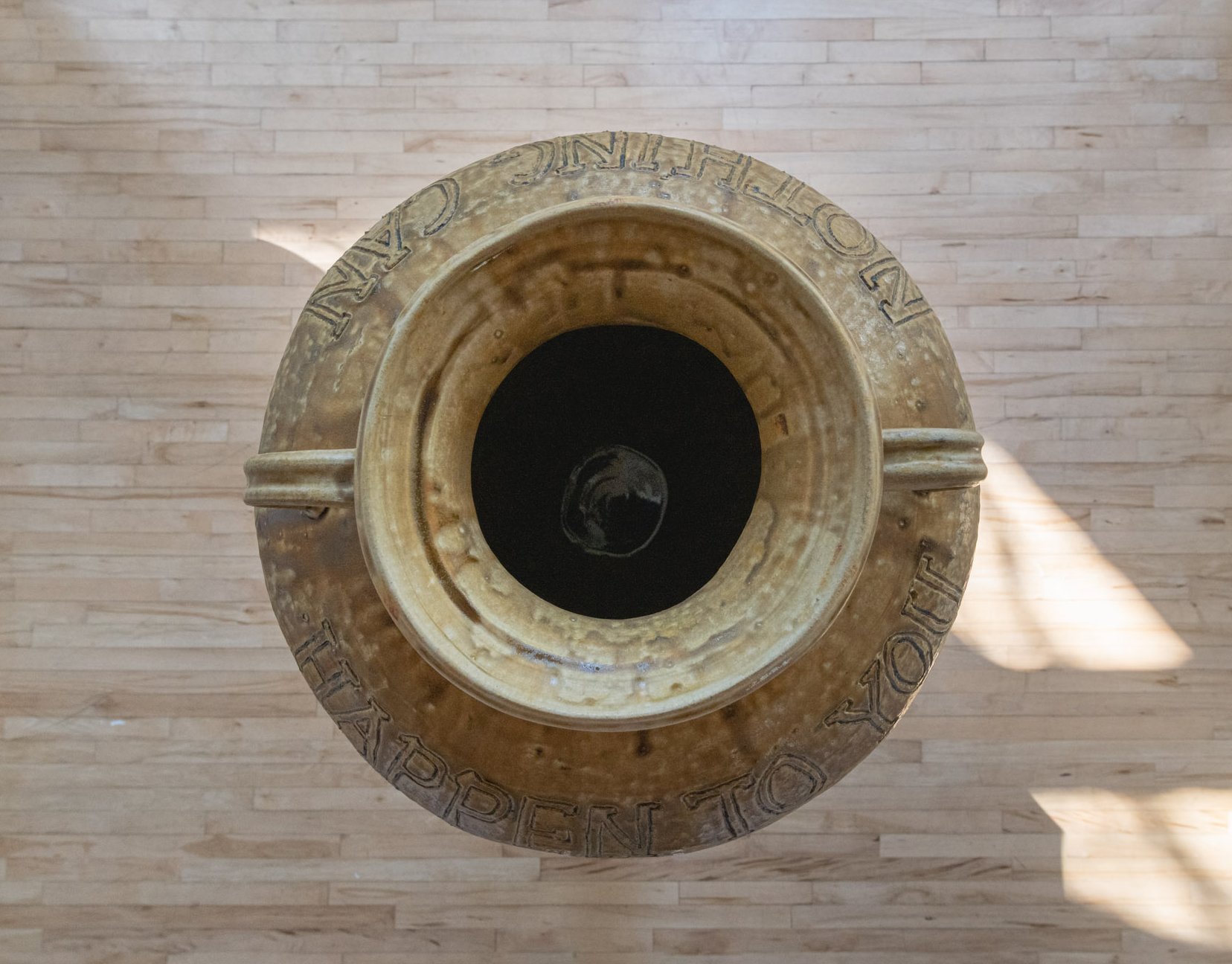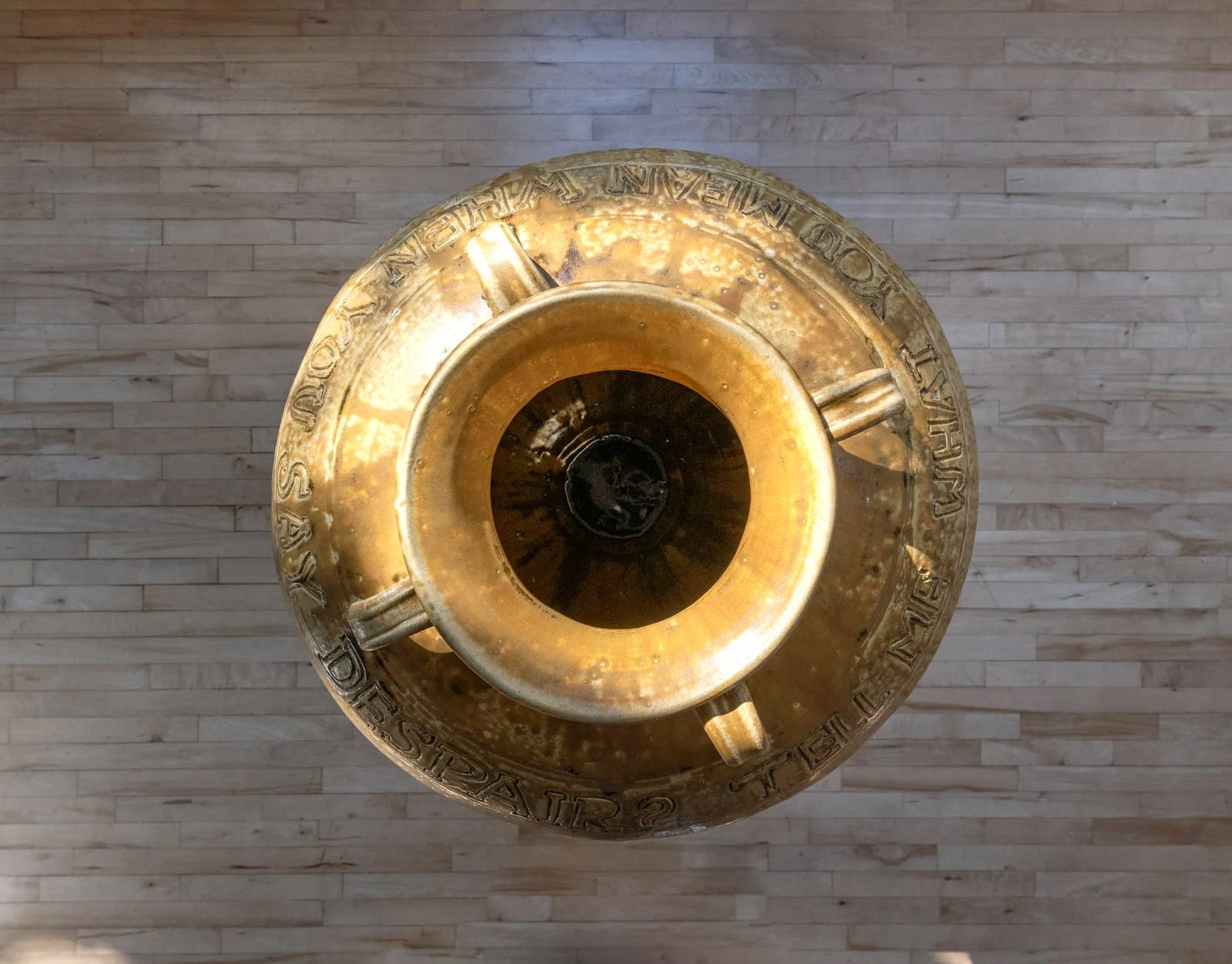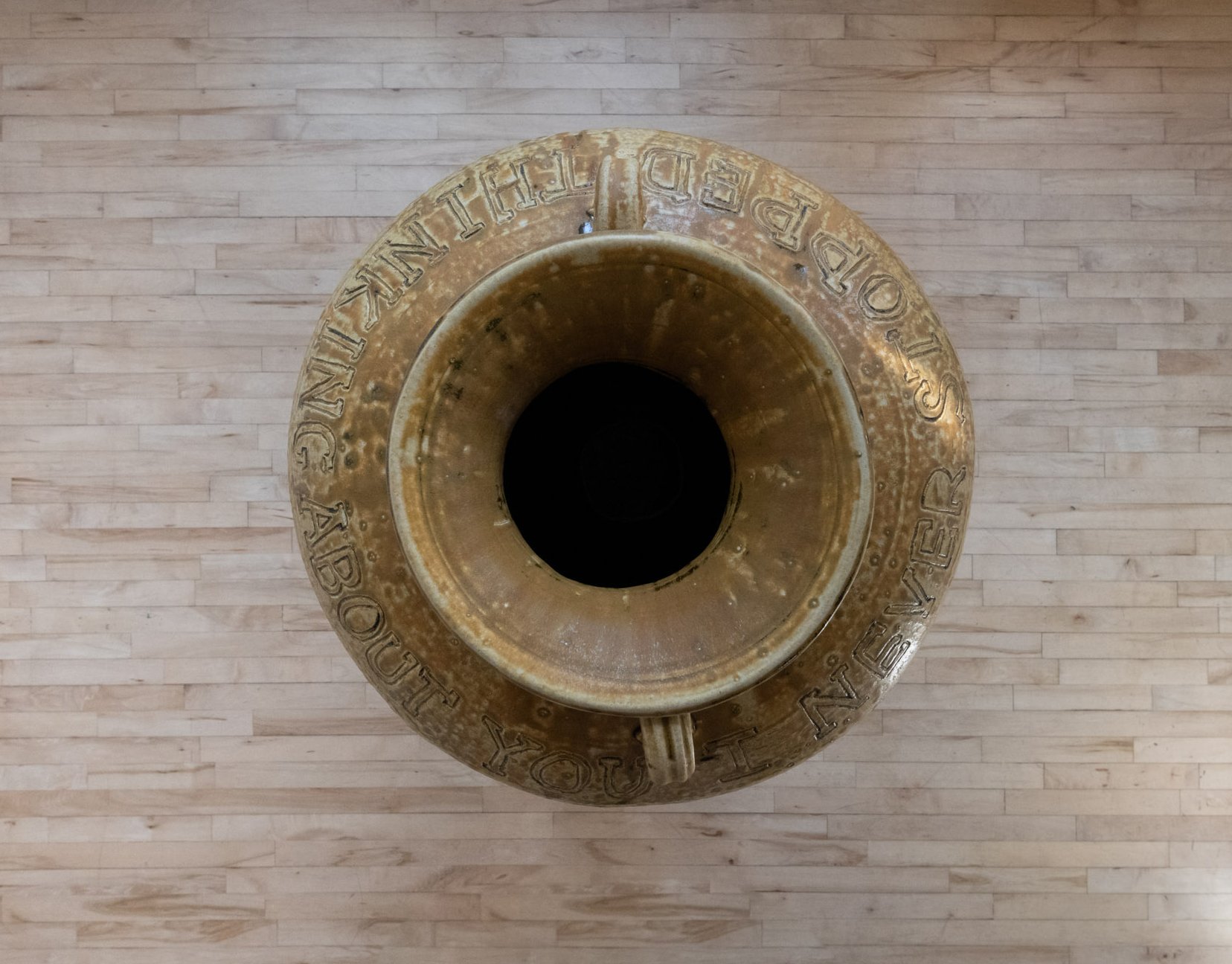





Hello My Love
-
FRONT OF HOUSE GALLERY / 2021
We are the beloved by Heather Watkins
Here, in this light-filled gallery, a group of five large ceramic vessels stand on pedestals of varying heights. Their shapes roughly echo your torso. Their warm, amber surfaces welcome you to come closer. You notice words. Ringing the top of each vessel—around the shoulder—large, outlined letters, carved into the hardened clay.Nothing can happen to you
Later, you learn the yellow-ochre glaze was made from firepit ashes, following the fires in the early summer of 2020 that burned thousands of acres of land, that turned the sky orange, that broke through all air quality records. You learn that these forms and this ash glaze connect directly to traditional North Carolina ceramic lineage—a tradition Dial describes as defined by mastery and productivity. A tradition that Dial disrupts with this body of work, by making slowly, embracing imperfections, inscribing each with love and loss and vulnerability. Storage jars that hold a story.
A poem. A poem composed of five ceramic vessels that you can only read gradually, by walking around each jar, counterclockwise, which feels like you’re unwinding and advancing simultaneously. A reading that begins with an invitation to release linearity and enter this poem from wherever you are.
In a way, every poem sets the pace of its reading. This poem, activated by your slowing steps, invites continuous resetting. As you move around the room, reading from jar to jar, your starting points slip around, too. Your cyclic reading aligns, then skips, then re-syncs with every word of this brief, yet deeply profound text:
Tell me what you mean
When you say despair
tell me / what you mean when you say despair / tell me what you mean / when / you say despair / tell me what / you mean when you say / despair tell me …
The poem, as Dial describes, was written “from an urgency to say what needs to be said, to take care of affairs, to reconcile.” To whom? With whom? You almost want these jars to speak, to utter more about the words they bear. You peer into them, on tip toes, listening for a whispered song from their deep and untouchable interiors. What you think you hear lies beyond sound though, and for now, remains unspoken, unwritten. Reading between the lines, you arrive at you. Addressed to an unnamed audience, we decide the audience is us, and the incantations that seem intended for a beloved, are now ours. We become a collective beloved.
The practice is not new in Dial’s work. Over the last several years, she has created numerous bodies of work that originate from closely-held interior space which she holds in a suspended state, until it becomes something else—her work. She refers to this process as a transmission, a communication with the unreachable. And this is one of the marvels of Dial’s work: she pulls us into her story, and simultaneously allows us to make it our own.
After this year of isolation and unimaginable loss that at times has felt beyond description, this multi-vesseled poem—these storied storage jars—are a gift. In saying what needs to be said, Dial offers us what we most want to hear. Hello My Love. I never stopped thinking about you. Find me on the other side. Made of earth and ash and time—they are waiting for you. They have something important to say.
-
Artist Statement
Hello My Love is a poem composed of five vessels that have been incised with text. Made during the pandemic, this body of work is a meditation on the loss of intimacy––the absence of conversation, confessions, contact––that was a collective experience. For this, I turned to the archaic form of the storage vessel. They are functional and heavy.
I held back on how to finish these pieces until the Fall of 2020 when fires set the Pacific Northwest ablaze. The air turned orange and smoke engulfed us. This led to experiments with ash glaze. I gathered ash from fire pits and friends around Portland. The resulting iridescent, amber surface makes the pieces appear, to me, as individual flames.
The poem arose from an urgency to say what needs to be said, to take care of affairs, to reconcile. They are incantations (Nothing can happen to you), a declaration of love (I never stopped), and more. The carving process was repetitive and time consuming––the majority happening after the pieces had been fired to stone. Returning to deepen the grooves became a ritual, a way of tending to meaning.
As things began to open up this spring, I noticed that visitors to my studio would embrace the vessels, trace fingers along text, or whisper to the interior. I encourage this intimate, close viewing. There is no order to the pieces. You are invited to circle around them and may touch them (gently).


